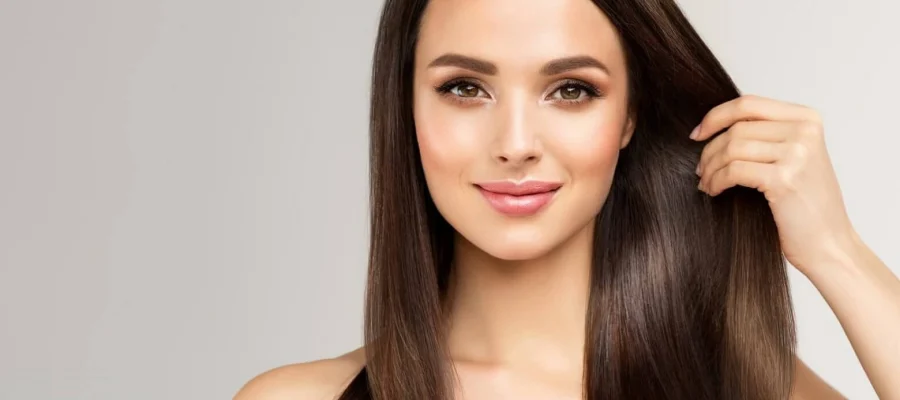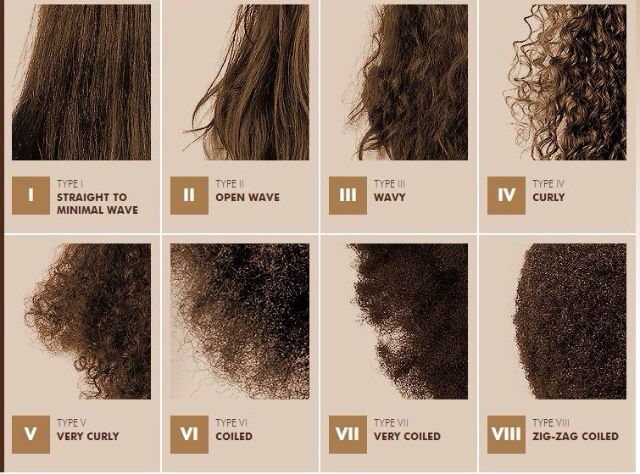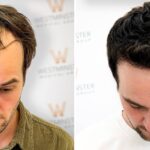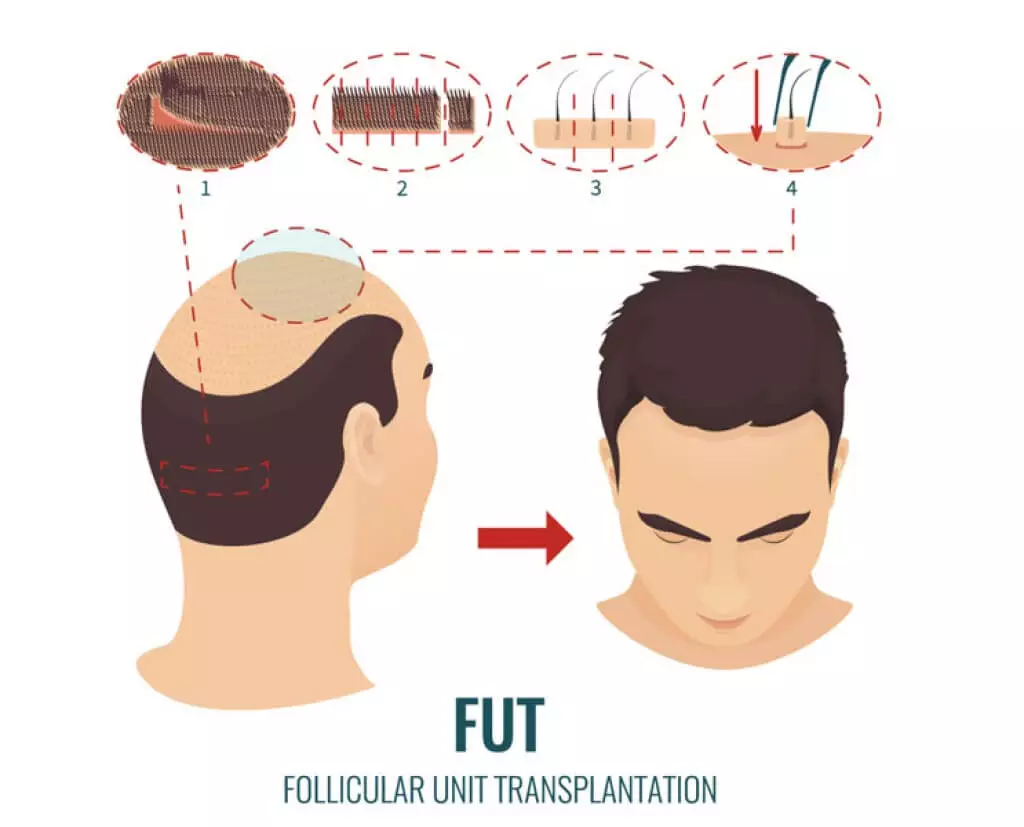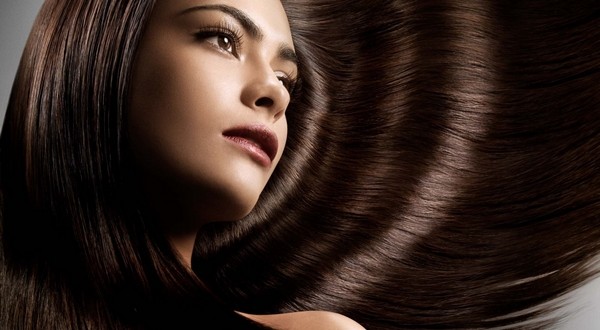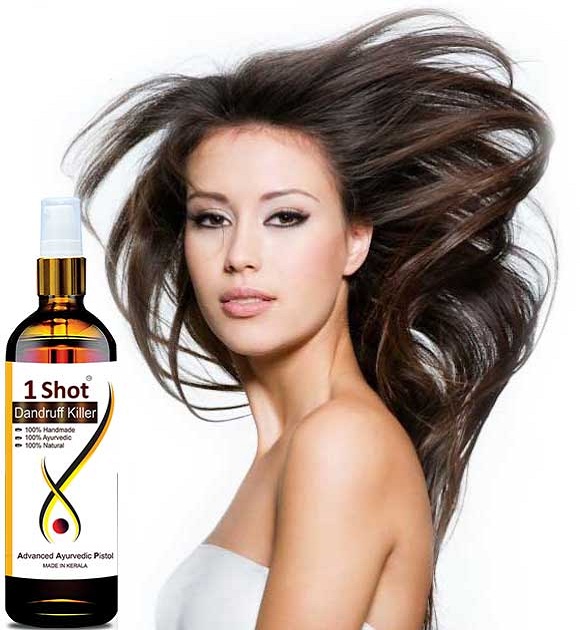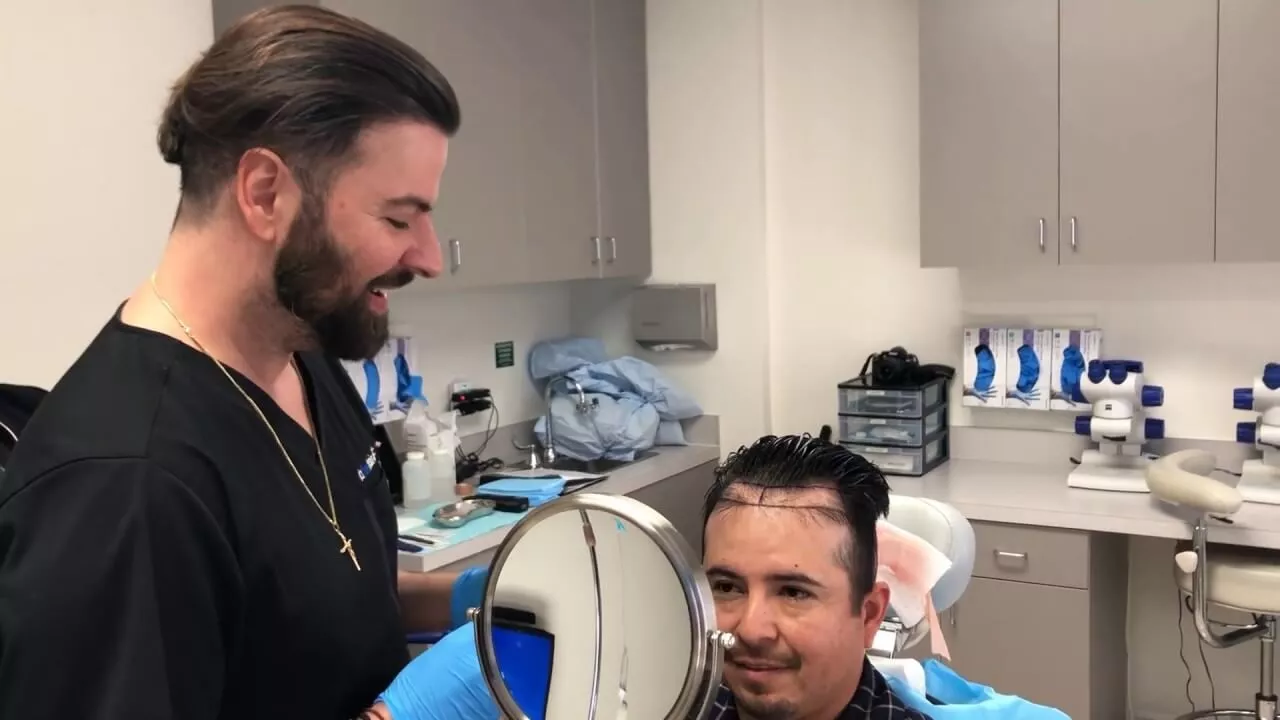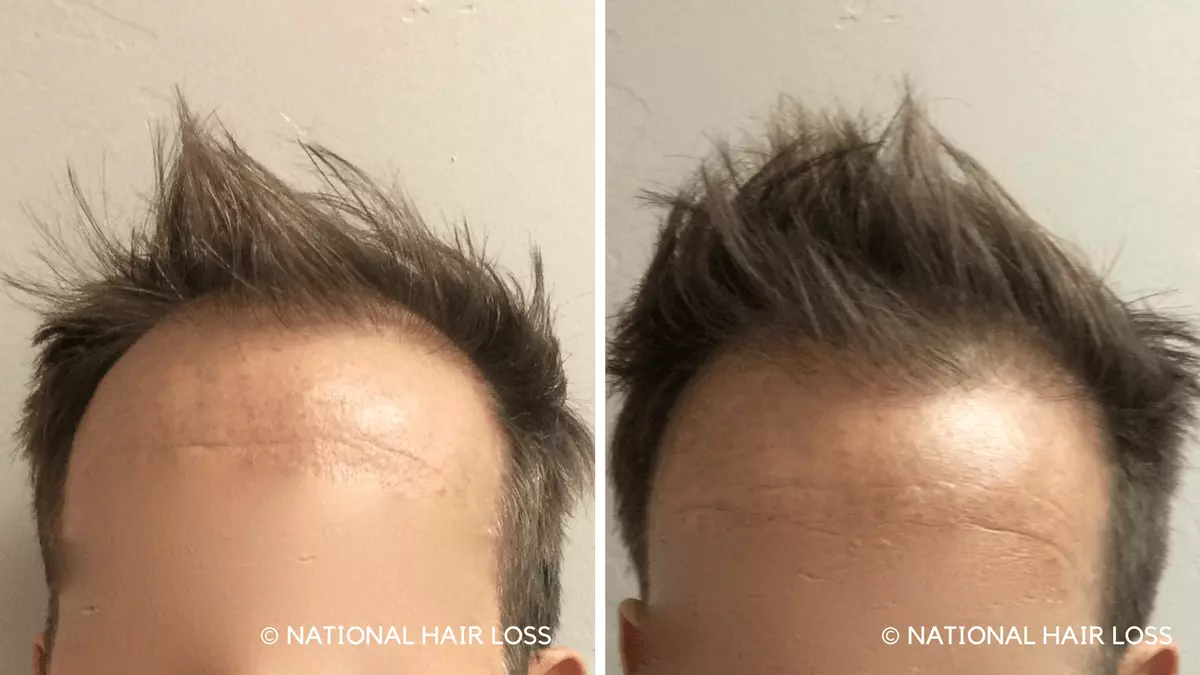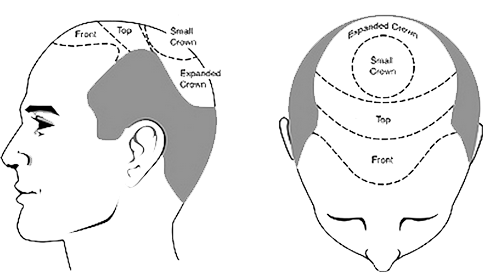Protein is an essential element in the maintenance and revitalization of healthy hair. Our hair is made up of a protein called keratin, and incorporating protein treatments for hair can help restore the strength, elasticity, and shine that your hair might have lost due to styling or environmental damage. Regular use of hair care protein products helps replenish protein, which is vital for reducing hair breakage and promoting overall hair health.
Hair is continuously exposed to environmental stressors such as pollution, heat styling, and UV rays, all of which can lead to protein loss. In response, integrating protein hair masks or protein shampoos for hair can not only repair this damage but also prevent future harm. Protein helps to rebuild the hair shaft, making it more resilient and giving it a natural, healthy appearance. This article dives into the best methods and products to incorporate protein into your hair care regimen.
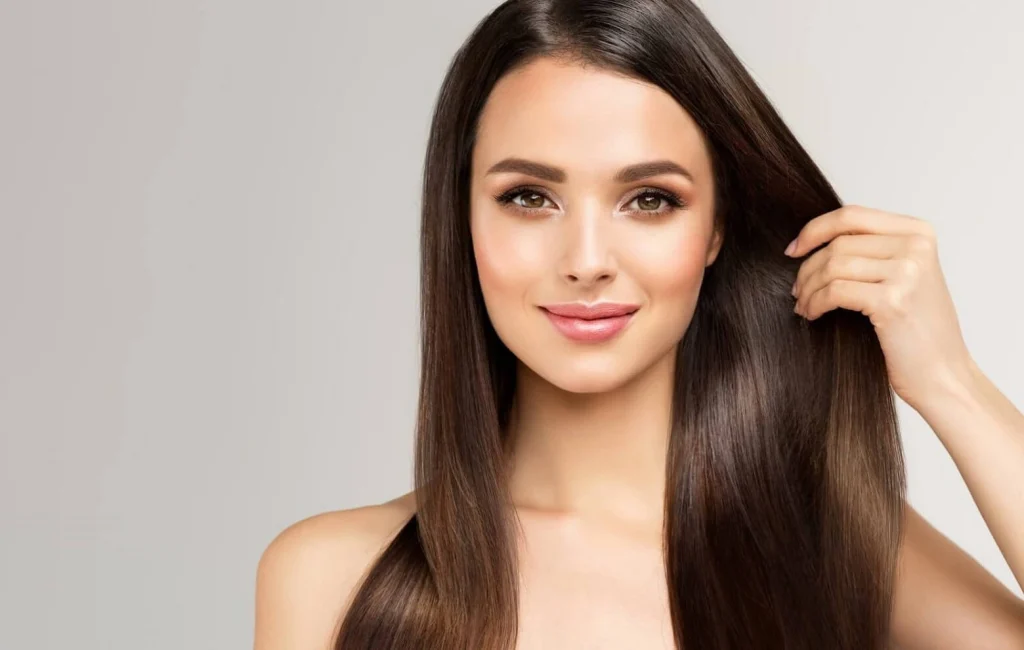
Content
The Role of Protein in Hair Health
Hair care is incomplete without considering the role of protein. Protein is the building block of hair, and it directly impacts the strength, texture, and overall appearance of the hair. The primary protein found in hair is keratin, a fibrous structural protein that forms the hair shaft. When the protein structure is compromised—whether from chemical treatments, excessive heat styling, or environmental exposure—hair becomes weak, prone to breakage, and lacking in volume.
Introducing hair care with protein helps restore the natural structure of hair by filling in the gaps left by damage. Protein-based treatments can act as a shield, protecting hair from further harm while rebuilding its strength from within. Whether you’re dealing with thinning, frizz, or dryness, protein hair treatments can provide much-needed nourishment, ensuring your hair remains healthy, shiny, and strong.
Effective Protein Treatments for Hair
One of the most effective ways to restore your hair’s health is through protein treatments for hair. These treatments typically contain a blend of proteins like keratin, silk, or collagen, which help reinforce the hair’s natural structure. Professional protein treatments for hair are often provided in salons, offering more concentrated formulas for deeper penetration into the hair fibers.
However, there are numerous at-home alternatives that can deliver impressive results. From high-quality protein shampoos for hair to protein hair masks, the range of options allows individuals to select products that cater to their specific hair needs. Protein treatments for hair are designed to help repair the hair cuticle and prevent split ends, making them a go-to solution for those seeking healthier, more resilient hair.
Choosing the right treatment depends on your hair type and the specific issues you’re addressing. For example, a keratin treatment is ideal for individuals with frizzy or unruly hair, while a collagen-infused mask may be best for those with thin or weak hair strands. Always consider your hair’s needs when selecting a treatment to ensure the best results.
The Power of Protein Hair Masks
Among the best protein hair masks available, these products provide intense hydration and nourishment, making them an essential part of any hair care routine. When applied regularly, these masks penetrate deep into the hair shaft, providing moisture and rebuilding lost protein. This results in smoother, shinier hair that’s less prone to damage.
For individuals with curly or dry hair, protein hair masks are particularly beneficial. They help to lock in moisture while reinforcing the hair structure, combating the dryness and frizz often associated with textured hair. The mask’s formula typically includes a mix of hydrolyzed proteins, amino acids, and conditioning agents that work together to repair and rejuvenate hair.
The application of protein hair masks should be done once or twice a week, depending on your hair’s condition. For those with severely damaged hair, masks can be used more frequently to restore elasticity and prevent further breakage. Regular use of protein masks ensures that hair stays nourished and manageable, even after frequent styling.
Why You Should Consider Protein Shampoos for Your Hair Care Routine
Adding protein shampoos for hair to your daily regimen is one of the most straightforward ways to maintain healthy hair. Unlike traditional shampoos that only cleanse the scalp and hair, protein shampoos for hair contain added ingredients designed to nourish and strengthen the hair from root to tip. These shampoos are enriched with proteins like keratin and silk, which work to fortify each strand as they cleanse.
Protein shampoos for hair provide essential nutrients that help to prevent breakage and split ends. They also help restore the hair’s natural sheen by smoothing the cuticle. Using a protein shampoo regularly can significantly improve hair texture, making it look shinier and feel smoother. For individuals with fine or thinning hair, protein shampoos can add volume and thickness, creating the appearance of fuller, more luxurious hair.
When choosing a protein shampoo for hair, it’s important to find a product that matches your specific hair type. For example, individuals with dry or coarse hair should look for protein shampoos that also contain moisturizing agents, while those with oily hair should opt for lightweight formulas that won’t weigh the hair down.
Signs Your Hair Needs Protein
Identifying when your hair needs a protein boost is crucial for preventing long-term damage. Signs of protein deficiency in the hair include excessive breakage, limpness, and a lack of elasticity. Hair may feel weak or brittle, and styling might become increasingly difficult. When you notice these signs, it’s important to address the issue by incorporating protein hair treatments into your routine.
Another clear indicator that your hair needs protein is when it begins to look dull and lifeless. This loss of vibrancy is often the result of a damaged protein structure. Adding a protein hair mask or protein shampoo for hair can restore the balance, reviving your hair’s natural shine and softness. Paying attention to these signs and responding with protein-based treatments can prevent further damage and help you maintain healthy, strong hair.
Balancing Protein and Moisture for Optimal Hair Health
It’s essential to find the right balance between protein and moisture in your hair care routine. While protein helps strengthen the hair, overuse can lead to a buildup that causes hair to become dry and brittle. To maintain optimal hair health, it’s crucial to incorporate moisturizing products alongside your protein hair masks and protein shampoos for hair.
The key is moderation—protein treatments should not replace your regular moisturizing routine. Instead, they should complement each other. Moisturizing conditioners and serums help to replenish the moisture lost during the protein treatment, ensuring that your hair remains soft, shiny, and hydrated.
For optimal results, alternate between protein treatments for hair and moisturizing treatments. This balance will ensure that your hair remains strong and resilient while maintaining its natural moisture levels.
Conclusion
Integrating protein treatments for hair into your daily or weekly routine is one of the most effective ways to combat damage and keep your hair healthy. From protein hair masks to protein shampoos for hair, there are numerous products available to address different hair concerns. Whether you’re looking to restore damaged hair, enhance texture, or boost volume, protein-based products offer a reliable solution.
FAQs
How often should I use protein treatments for hair?
Using protein treatments for hair once or twice a week is typically recommended, but this can vary depending on your hair’s specific needs and condition.
Can protein hair masks help with frizzy hair?
Yes, protein hair masks are especially beneficial for frizzy hair as they help lock in moisture while strengthening the hair structure, reducing frizz.

Karen is a health blog author who has been writing about healthy living since 2013. She started her journey by adopting a vegan diet and eating only organic foods, but the more she learned, the more she realized that we should all be eating plant-based diets exclusively. As an expert in nutrition and wellness, Karen blogs to educate readers on how they can live happier and healthier lives through food choices!

